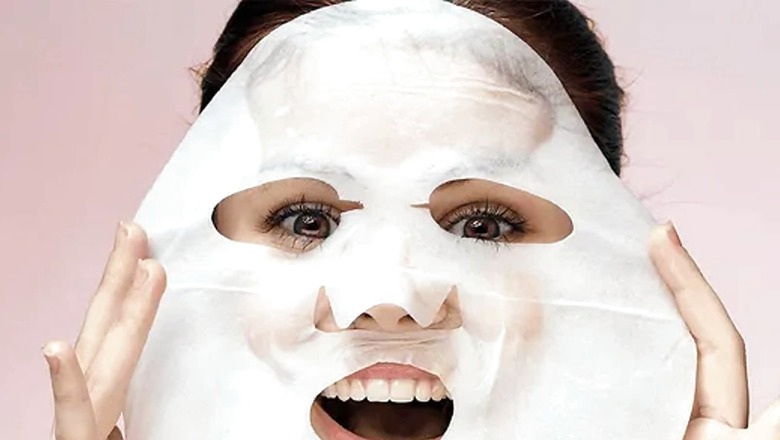
views
From your favourite beauty blogger’s photograph to a beauty store’s stocked racks, sheet masks and face serums are always in our faces. For the unversed, sheet masks and face serums are made of active ingredients that when absorbed into the skin provide instant hydration along with miscellaneous benefits for a plump looking, glowing and dewy skin.
But how are they different from each other and which one is meant for you, we know these questions plague you all the time. To know these answers let’s dig deeper.
Sheet Masks
A sheet mask is a pre-cut, thin mask that has been soaked in serum and natural ingredients. These are commonly made of paper, fibre, or thin films that hydrate the skin. Because of the eye, nose, and lip cutouts, they cover your entire face evenly and neatly. Simply remove the mask from its packaging and gently press it against your face.
Also Read: How Kate Middleton and Queen Camilla Paid Tribute To Their Mother-In-Laws
Sheet masks can help with a variety of skin problems because they contain ingredients like rice water, aloe vera, vitamin C, green tea and hyaluronic acid. “In order to protect the skin from airborne pollutants and other irritants, sheet masks are applied to the skin and left in place for 15 to 20 minutes. The skin receives nutrients and locks in moisture between the mask and the skin. Adding sheet masks to your post-treatment or post-peel routine can be beneficial. A sheet mask might increase the hydration of the skin,” says Dr. Poorva Shah (MBBS, MD Skin) Consultant Medical & Aesthetic Dermatologist.
Face Serums
Serums are skincare products with significant concentrations of a wide range of active ingredients, including vitamins, peptides, acids, and many others. These active ingredients work together to address particular skincare issues. “Serums are typically liquid, translucent, gel-based, and thinner than moisturizers. As a result, your skin appears healthier. Based on your skin condition, serums can help in alleviating the condition,” adds Dr Shah.
Choose a face serum containing salicylic acid and retinol if you have acne-prone and oily skin. Try something with hyaluronic acid for dry skin.
What is your pick?
It is entirely up to you to select the best tool for your skincare regime.
But ideally one would need to use both since both have their benefits. Best to ask your dermatologist to recommend each of these most suited to your skin and the concerns you want to address.
Read all the Latest Lifestyle News here




















Comments
0 comment